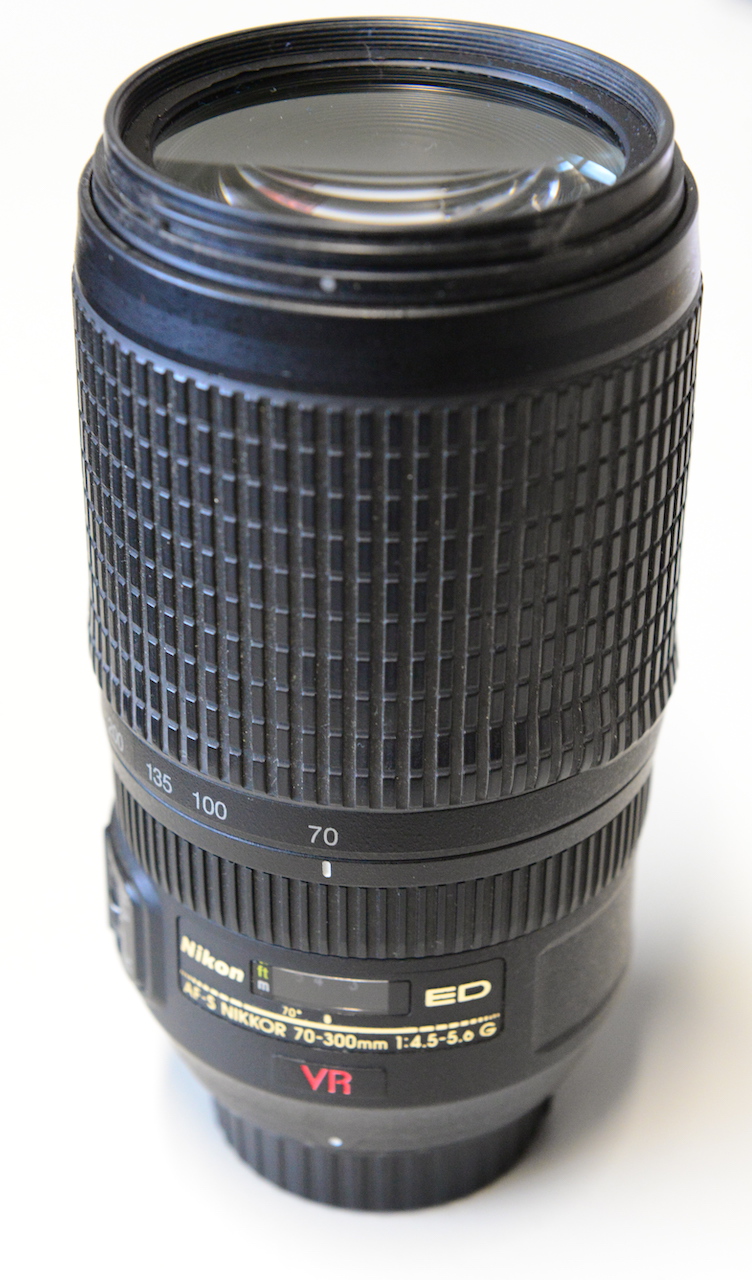Nikon 70-300
I am of course a bit biased, I like long lenses a lot, and this was my first lens that was longer than the kit lens I had with my first camera. After all this time I still love it. Now that I own also a Nikon 200-500 I can safely say that, the extreme focal lengths are (at least for me) an overkill. There is not that much of a difference between 300mm and 500mm (there are very few pictures where I say, I only could make it with a longer lens). So 300mm is (just like 24mm for the wide angle) as much as you will need.
If I had only one lens, this would probably not be it, because its lower end at 70mm is still a bit too long for a number of cases. This is an excellent second lens to keep with you. There are many versions of this lens that all look very much the same, the main difference is around the vibration reduction. The longer the lens, the more you have to hold the camera steady, so the vibration reduction help is more appreciated for these zooms.
A good question is a comparison with the Nikon 28-300. They are about the same weight (one of my favorite arguments), sure the Nikon 28-300 costs about 2x as much, but it is hard to argue against it. I still sort of like the 70-300, I know it sounds silly, but I like that it allows me to have an additional lens/camera for the wider shots.
Versions
There are many versions that all look very much the same
- The one I pictured is a Nikon 70-300mm f/4.5-5.6 VR, this is no longer produced
- There is an older non Vibration Reduction version 70-300mm f/4.5-5.6G which is ridiculously cheap (200 or less new).
- To confuse people there are three newer P lenses by Nikon
- a DX version AF-P NIKKOR DX 70-300mm f/4.5-6.3 G ED VR
- another DX version that does not have vibration reduction AF-P NIKKOR DX 70-300mm f/4.5-6.3 G ED
- and a separate FX version (AF-P NIKKOR 70-300 mm f/4.5-5.6E ED VR
- these two lenses do not operate with most of the older digital cameras as they do not have an autofocus motor (the P).
| Price | Quite affordable |
|---|---|
| Weight | Rather heavy, 750g |
| Good for | People, landscape, animals |
| New or used | About 550, 250 used |
I originally started using this lens on an APS-C, where it was always too long, this meant that I usually had to have another lens with me (a 35mm or a wide angle). However on a full frame camera, you realize that you could actually get away with 70mm for more situations than what you would be able to do with 105mm (the lower end of this lens on an APS-C). It is still by far not good asa general walk around lens, but the need to carry a second lens/camera is a bit less on the full frame.
This lens becomes a 105mm-450mm lens on APS-C camera, making it a very long lens in a relatively compact package. The only problem is that at this range, even the wider end (105mm) has quite narrow field of view, so if you carry this lens, unless you know you will only be shooting planes and birds or details on architecture, you will need a second lens/camera with you.
Technically there is a APS-C specific 55-200 lens that covers the same range as this 70-300 one. However I think you have more options with a full frame compatible lens such as this one.
Gallery
These pages are for Amateur Photographers and not really for seasoned photographers and professionals. I have no affiliation or commercial interest with any brand/make. I write from my own experience. I ended up using mainly Nikon, so I am more familiar with this brand than others. See price for notes on pricing as well as photography related links.






